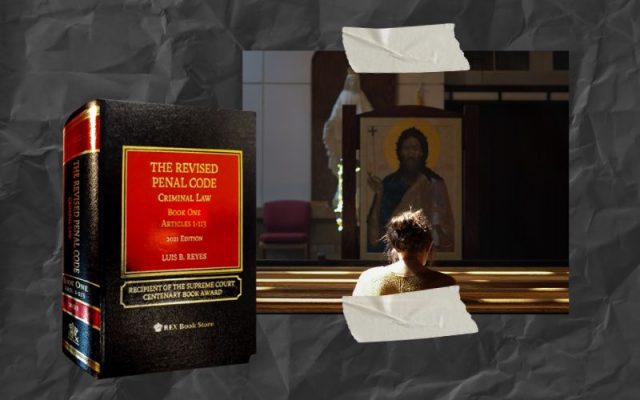Does a remix of a Catholic prayer hymn for a drag performance a violation of the penal code?
Filipino drag performer Pura Luka Vega received flag for the number, which received strong disapproval from senators, most notably Senate President Miguel Zubiri.
In claiming that Vega’s performance was offensive, Zubiri cited Article 201 of the Revised Penal Code which penalizes “immoral doctrines, obscene publications and exhibitions and indecent shows.”
In a Twitter thread, lawyer Chel Diokno explained that Vega could be penalized under Article 201 if proven that the “obscenity” committed does not have no artistic or political value.
Sa Article 201 naman, kailangang patunayan ang "obscenity" ng ginawa, at isa sa gabay ay kung ito, taken as a whole, ay talagang walang artistic o political value. 4/5
— Chel Diokno (@ChelDiokno) July 13, 2023
Otherwise, he writes, it can be protected speech or expression by the Constitution.
Ginagarantiya ng Saligang Batas ang kalayaan sa pananalita at pagpapagayag, maging sanhi man ito ng galit o kontrobersiya: "The right belongs as well—if not more—to those who question, who do not conform, who differ.” 5/5
— Chel Diokno (@ChelDiokno) July 13, 2023
In an interview with TeleRadyo, the drag queen said the performance was intended to be a “drag art interpretation of worship” and was not intended to be disrespectful to the Catholic religion.
Does it fall under the ‘religious feelings’ clause though?
Online discussions were also on whether the performance falls under Article 133 of the Revised Penal Code. The provision penalizes acts that offend “religious feelings.”
However, for an act to be considered a crime under Article 133, Diokno pointed out two elements that have to be present:
- that the act was committed in a place of worship or during a religious ceremony, and
- that the act is considered “notoriously offensive” to the faithful.
A “notoriously offensive” behavior could be:
- a mockery of dogma,
- a mockery of the religious ceremony, or
- toying with or destruction of an object of veneration.
“Kung hindi sa place of worship o sa gitna ng religious ceremony ang ginawa, hind maituturing na krimen ang nangyari,” Diokno tweeted.










